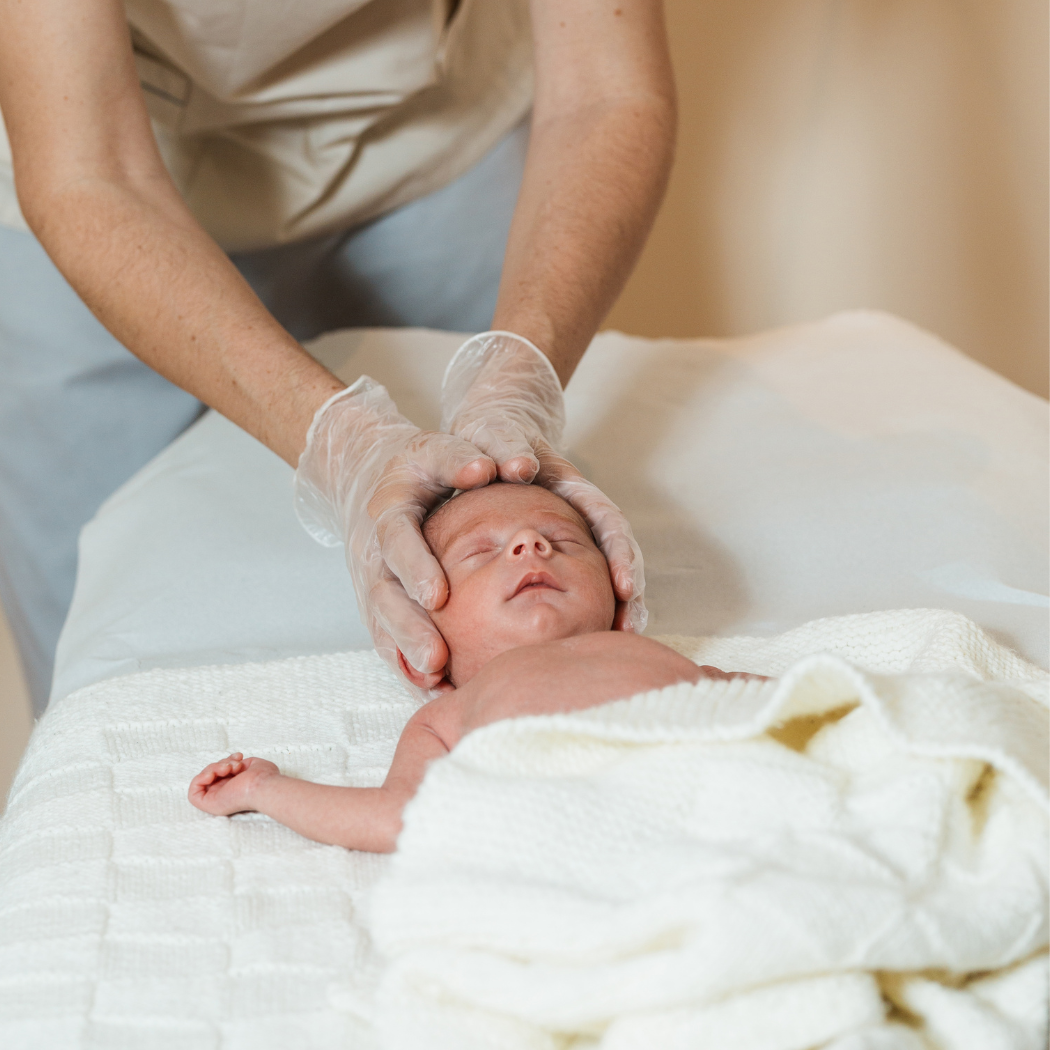

On 9 January 2024, the All-Party Parliamentary Group (APPG) on Birth Trauma established the first national inquiry in the UK Parliament to investigate the reasons for birth trauma and to develop policy recommendations to reduce the rate of birth trauma.
They called on the UK Government to publish a National Maternity Improvement Strategy which outlines 12 ways to improve maternity care in the UK.
Under the section ‘What does ‘good’ look like in maternity?’, the topic of consent is addressed with this deeply concerning recommendation:
“Consent: Except in an emergency, no procedure should be carried out on a woman without her consent.”
Emma Ashworth, an expert in Birth Rights outlines the illegalities around this statement, what she has done (along with others) to seek an amendment to the report and how we can all help to protect women and birthing people’s rights to consent before anything happens to them or their babies:

“Kim Thomas, the Report author and CEO of the Birth Trauma Association sought legal advice after I originally contacted her before sending this letter. She confirmed to me that I was correct, the text that she had written did contradict UK law, but told me that she still wasn’t going to change it. She suggested that I contact the document owner, MP Theo Clarke, and ask her to change it.
I gathered a team of human rights in birth lawyers, academics, activists and Birth Rights charities, and we wrote the letter published in this post, but have not had any response (other than auto-responses) – apart from my personal Facebook account being blocked from the Birth Trauma Association support group where I have volunteered for some years.
Are you as horrified by this as we are? If so, please do consider:
1) Sharing this as widely as possible to raise awareness
2) Writing to the Birth Trauma Association and the MPs who were on the APPG, and ask them to amend this dangerous legal error.
All of the email addresses below are in the public domain:
Kim Thomas, via the Birth Trauma Association (https://www.birthtraumaassociation.org/contact-us)
Theo Clarke MP: theo.clarke.mp@parliament.uk
Rosie Duffield MP: rosie.duffield.mp@parliament.uk
Cherilyn Mackrory MP (cherilyn.mackrory.mp@parliament.uk)
Bell Riberio-Addy MP (bell.ribeiroaddy.mp@parliament.uk)
Mark Pawsey MP (mark.pawsey.mp@parliament.uk)
Darren Henry MP (darren.henry.mp@parliament.uk)
Helen Morgan MP (helen.morgan.mp@parliament.uk)
Sally-Ann Hart MP (sallyann.hart.mp@parliament.uk)
For the attention of the members of the All Party Parliamentary Group for Birth Trauma,
We are a group of lawyers and activists who are focused on the rights of women and birthing people during the perinatal period.
We are writing following discussions between Kim Thomas, author of the Birth Trauma Inquiry Report, and one of our members, Emma Ashworth, about a line on page 66 (in the section entitled “Vision: what does ‘good’ look like in maternity?)”:
“Consent
Except in an emergency, no procedure should be carried out on a woman without her consent.”
We are deeply concerned about this statement, which directly contradicts the existing UK law on consent (as well as the NHS guidance on consent in a medical setting).
The right of pregnant women to decline treatment, even in emergency scenarios, is well established by the courts. See for example Re MB [1997] EWCA Civ 1361: “A competent woman who has the capacity to decide may, for religious reasons, other reasons, for rational or irrational reasons or for no reason at all, choose not to have medical intervention, even though the consequence may be the death or serious handicap of the child she bears, or her own death. In that event the courts do not have the jurisdiction to declare medical intervention lawful and the question of her own best interests objectively considered, does not arise.”
The only, extremely limited, exception to this rule is where the woman in question lacks capacity to consent (for example because she is unconscious), in which case the detailed rules and procedures in the Mental Capacity Act 2005 must be followed.
We are worried that this inaccurate, misleading entry in the document will undermine the rights of women and birthing people, and, in particular, will:
– Mislead maternity staff into incorrectly thinking that this official document, published by parliamentarians from across the political spectrum and endorsed by the Prime Minister and other senior ministers, reflects the law;
– Mislead pregnant and birthing women/people and their families into thinking that a document which was published by multiple MPs, endorsed by the Minister for Women’s Health Strategy, and further endorsed by the Prime Minister means that their rights are now diminished, even though the law has not been changed;
– Give the hospitals who are already responding to complaints with answers that state (incorrectly) that the staff had the right to do what they wanted because it was an “emergency”, carte blanche to use this report as “evidence”.
All of these concerns are heightened because of the worryingly subjective nature of what constitutes an “emergency”. In contrast to the concept of capacity, which is clearly defined legally and for which there are well established NHS procedures in place, we have grave concerns that this reference to an emergency would be used by some practitioners to justify not seeking consent in an extremely wide range of circumstances.
Many maternity staff and pregnant women and people already erroneously believe that a pregnant woman or person “has to” have interventions that are offered to them. This can be seen in the Birth Trauma Inquiry Report itself, which comments, ‘Women frequently felt they were subjected to interventions they had not consented to…’ – Page 8.
The Report contains a specific example on page 52 of a woman in an emergency situation where the doctor performed two interventions without consent:
‘In her final NHS shift, she described caring for a mother whose baby was stillborn before being called to an emergency forceps birth in which “the woman was screaming with fear and panic in her eyes, the obstetrician was useless in her communication and didn’t gain consent for the episiotomy or the forceps.” The result was “another unnecessarily traumatised mother and father starting parenthood.”’
This example mirrors the experiences that we, as birth activists, hear from women and people every day. The Report discusses the trauma caused by interventions which are performed without consent, and it makes clear how traumatic and injurious they are. And yet, it proposes allowing this to happen in “emergency” situations.
The consequences of this legal and ethical error remaining in the report include:
– MPs having their name in an official APPG report which expressly misstates the law;
– More women and birthing people becoming the victims of assault (and battery, depending on the UK country) because of the contents of this document;
– Additional birth trauma being caused by a document intended to reduce it;
– More maternity staff committing criminal assault (and battery) because they believe the content of this document.
We are also deeply concerned that the Birth Trauma Inquiry Report Chair, Theo Clarke, has publicly called on the Government and the Prime Minister to “implement our recommendations in full”.
This means that a future Government may implement legislation which actively removes the right of birthing women and people to decline interventions in the case of an “emergency”, even if they retain the capacity to make the decision to decline. (Reference: https://x.com/theodoraclarke/status/1789915089908183534)
We suggest that the original text is replaced with the following:
“Consent
No procedure may be carried out on a pregnant or birthing woman or person without their consent, except in the extremely limited circumstances where it has been established in accordance with the law that such woman or person lacks the capacity to make that decision. To be valid, consent must have been given freely, without coercion, and following the recognised legal principle of informed decision making. Consent (including a signature on a consent form) is only valid if the process of informed decision making has been followed.”
We suggest that the following reference is included: https://birthrights.org.uk/factsheets/consenting-to-treatment/
We respectfully request that we receive a response from you by 5pm, Monday 3rd June. If we do not receive a response from you by this time, we will assume that you are declining to consider an amendment to the document. We request that the Report is updated with agreed text by Friday, 7th June to ensure that as few people as possible read the incorrect version.
Please note that this email and any response that you make may be put into the public domain.
Yours sincerely,
Emma Ashworth, Birth Rights Activist
Elizabeth Duan, Solicitor (England & Wales), Birth Rights Activist
Dr Mari Greenfield, Academic and Birth Rights Activist
Hermine Hayes-Klein, Human Rights Lawyer
Dr Gemma McKenzie, Academic and Birth Rights Activist
Laura Mullarkey, Solicitor (England & Wales), Birth Rights Activist AIMS (The Association for Improvements in the Maternity Services) Birthrights

It's never been more important to use evidence-based information to make decisions and feel supported in what you feel is best for yourself and baby.

A gentle and effective approach to supporting your baby's wellbeing.

Pregnancy and parenthood bring big changes, and without the right support, they can lead to increased stress, time away from work, and employees feeling they have no choice but to leave.